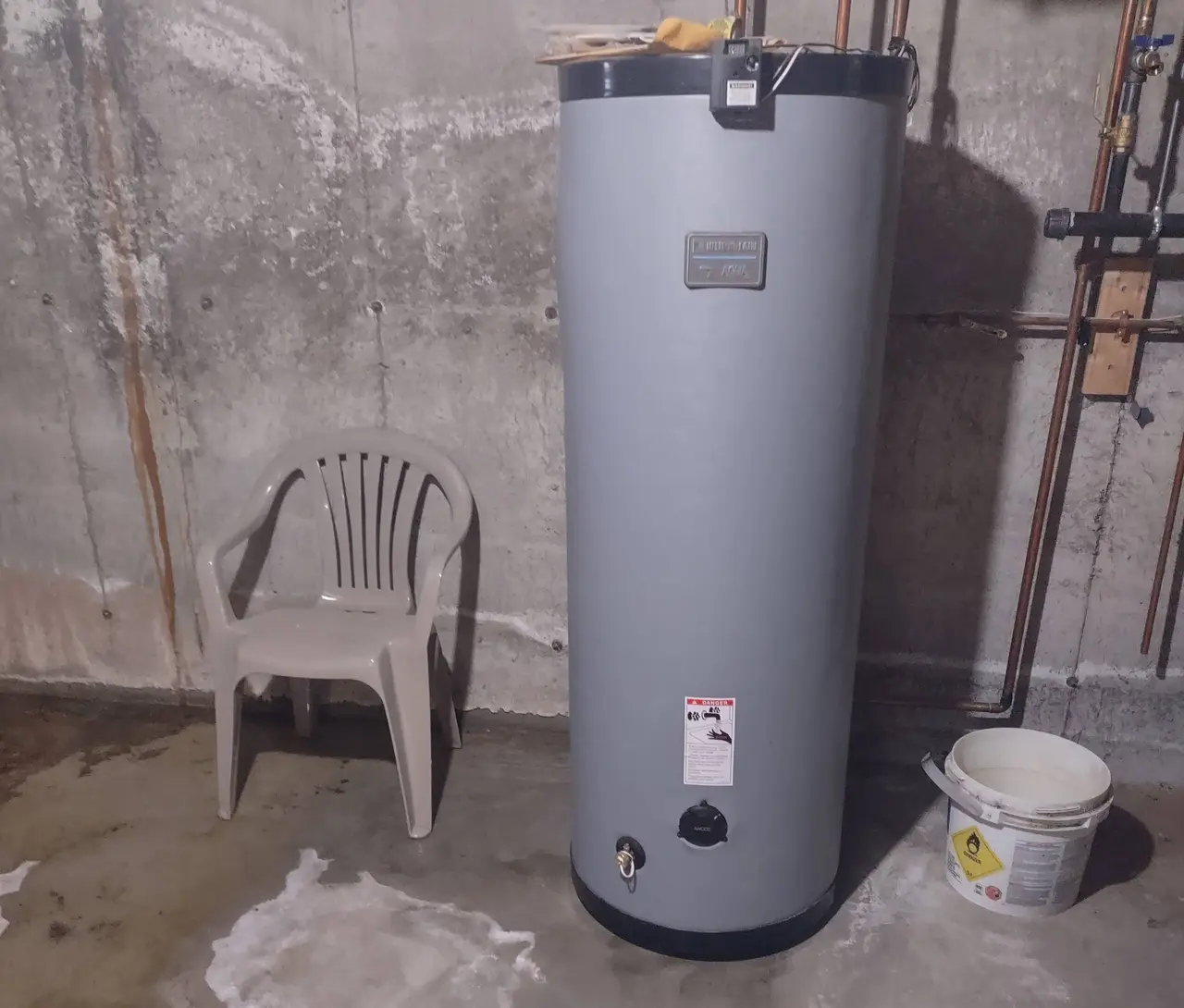Call us at...
Richard T. Curley
Richard T. Curley
Richard T. Curley
PLUMBING & HEATING

What Should I Do If My Water Heater Is Leaking?
A leaking water heater creates extreme problems for homeowners, yet prompt action stops the development of larger issues in the future. This guide presents a clear action plan for responding to water heater leaks to help you handle the situation effectively.
Step 1: Identify the Source of the Leak
Examine the surrounding area of your water heater to identify which part is leaking water. Examine the floor region for moisture signals such as drips from pipes and water stains.
When you detect wet patches or accumulating water, it is essential to locate their original source. Leaks may start from connections instead of the tank body itself.
A small amount of moisture indicates the presence of a more serious problem during the inspection process. Your attention needs to focus on spotting rust or corrosion because it indicates that a failure is near.
Small leaks sometimes remain invisible to the naked eye. Listening for unusual hissing sounds will help detect internal heater issues that might be present.
Step 2: Turn Off the Power and Water Supply
You need to shut off electrical power to your heater immediately or disable the gas supply when your heater operates on gas. The water supply needs to be cut off through the cold water valve.
This is a critical step! The safety precautions protect you from electrical dangers and stop the water heater from operating against broken systems, which could lead to additional leakage.
The area needs to be evacuated of people before you can evaluate the situation after turning off both the power and water supply. The safety of all individuals should remain the top priority.
Shutting off your water heater immediately might seem unimportant, but doing so will protect you from additional complications that could develop later. Taking small precautions now will lead to big benefits in the future.
Step 3: Drain the Water Heater
It is safe to drain the water heater, if possible, in order to prevent excessive flooding. The drain valve located at the tank bottom requires opening while using a hose to safely direct water to drainage.
Be cautious while draining; the water that comes out will likely be hot. It’s wise to allow the unit to cool before you start this process. Hot water can be hazardous.
You should maintain close observation to confirm the water drains into your designated drainage area. You must avoid making additional complications during the cleanup efforts.
The tank should be examined for any noticeable damage following the drainage process. Check the tank for rust or bulges because these signs suggest major problems that require immediate attention.
Step 4: Assess Whether to Repair or Replace
Choose between water heater repair or replacement based on leak severity and your unit’s age. The age of your water heater determines its likelihood to develop issues.
When your water heater reaches its tenth year and displays major leaks, it makes sense to replace it instead of performing repairs because replacement will be less expensive. A new model purchase will save you money on repair expenses while also reducing your energy usage.
A repair should be acceptable if your water heater is still in its early years of operation. The manufacturer’s guidelines, along with professional consultation, will help you determine the most suitable course of action.
The process of evaluating your choices becomes essential for decision-making. Knowledgeable decision-making prevents future maintenance problems from occurring.
Step 5: Call a Professional if Needed
Contact a licensed plumber whenever you doubt the situation or the leak proves critical. They possess the necessary skills to handle difficult situations while guaranteeing your home’s safety.
Professionals offer useful knowledge and possible solutions that enable them to detect issues that you might fail to notice. An expert evaluation will prevent you from making expensive errors.
Before making your call, you should have the water heater type and observed symptoms ready to share with the technician. The technician needs this information to develop an effective diagnostic plan.
You should contact a professional immediately because a small leak now has the potential to develop into an expensive major issue tomorrow. Professional help provides you with peace of mind.
Wrapping It Up: Your Next Steps
These steps will guide you to properly manage a leaking water heater. Always keep safety first and reach out to a professional whenever you feel uncertain about a situation.
